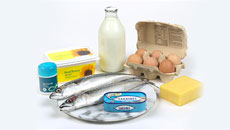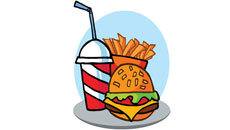Do you ever wonder why it’s so hard to resist overeating during holidays? The answer is simple. Willpower isn’t a dimension of personality, or character, it’s simply a cognitive function available to us in limited doses.
In fact, in my upcoming book, Bright Line Eating: The Science of Living Happy, Thin and Free, research shows that we all have as little as 15 minutes of willpower at our disposal at any given time before it runs dry.
It’s no surprise then that when there are temptations everywhere, we cave! This is what I call the “Willpower Gap.” But there are ways to expand willpower to better manage holiday eating. The key is to be aware of the “Willpower Gap” and plan accordingly so you don’t fall into it.
Here are the five key steps I recommend:
Plan ahead
Don’t leave yourself to make decisions in the moment when you’re tired, hungry or overwhelmed by the crowd. Decide in advance what you will eat each day and when so you won’t be making food choices at times of day when your willpower is depleted.
Eat regular meals.
When regular meals become part of the scaffolding of your life, it takes the burden off of willpower. A schedule of eating three meals a day at regular mealtimes – breakfast, lunch, and dinner – not only helps eating the right things become automatic, but also passing up the wrong things in between.
Reduce stress
Stress and the emotional regulation that go along with it taxes your willpower. So wherever possible, modify or avoid the things that tap your resources. Where it can’t be avoided just bringing awareness that an upcoming situation is going to deplete you – such as that dreaded political conversation with your dad’s aunt – can prevent your falling into the “Willpower Gap.”
Get enough sleep
Make sure you are getting enough sleep each night. Sleep is a powerful willpower replenisher.
Practice an attitude of gratitude
Research shows that something as simple as expressing gratitude will replenish willpower. Gratitude also helps shift the focus from what you want, or crave, to what you have.
About the author
Susan Peirce Thompson, Ph.D. is a psychology professor, a brain and cognitive scientist, and an expert in the psychology of eating. She is President of the Institute for Sustainable Weight Loss and CEO of Bright Line Eating Solutions, a company dedicated to sharing the psychology and neurology of sustainable weight loss and helping people achieve it.






